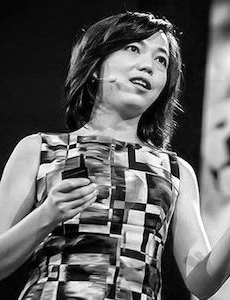Home
Designing AI to Cultivate
Human Well Being
GSBGEN 596
Photo Credit: Christopher Michel. christophermichel.com
Photo feed: explorers.com
How do we design AI to promote human flourishing?
Artificial Intelligence (AI) has the potential to drive us towards a better future for all of humanity, but it also comes with significant risks and challenges. At its best, AI can help humans mitigate climate change, diagnose and treat diseases more effectively, enhance learning, and improve access to capital throughout the world. But it also has the potential to exacerbate human biases, destroy trust in information flow, displace entire industries, and amplify inequality throughout the world. We have arrived at a pivotal moment in the development of the technology in which we must establish a foundation for how we will design AI to capture the positive potential and mitigate the negative risks. To do this, we must be intentional about human-centered design because, “Only once we have thought hard about what sort of future we want, will we be able to begin steering a course toward a desirable future. If we don’t know what we want, we’re unlikely to get it.” Thus, building AI must be an inclusive, interactive, and introspective process guided by an affirmative vision of a beneficial AI-future.
The goal of this interdisciplinary class is to bridge the gap between technological and societal objectives: How do we design AI to promote human well-being? The ultimate aim is to provide tools and frameworks to build a more harmonious human society based on cooperation toward a shared vision. Thus, students are trained in basic science to understand what brings about the conditions for human flourishing and will create meaningful AI technologies that aligns with the PACE framework:
- has a clear and meaningful purpose
- augments human dignity and autonomy
- creates a feeling of inclusivity and collaboration
- creates shared prosperity and a sense of forward movement (excellence)
Toward this end, students work in interdisciplinary teams on a final project and propose a solution that tackles a significant societal challenge by leveraging technology and frameworks on human thriving.
About the Course
GSBGEN 596 / CS421 (2 units)
Dates of Class:
February 22, 24, 26, March 1, 3, 5
Time: 3:00 – 5:50 pm PST
The Team
Wendy De La Rosa
(Course Assistant)
wendyde@stanford.edu
Susannah Shattuck
(Course Assistant)
susa@stanford.edu
Get in Touch
Questions or comments about the class?
Use the contact form, and we’ll try to get back to you as soon as possible.

